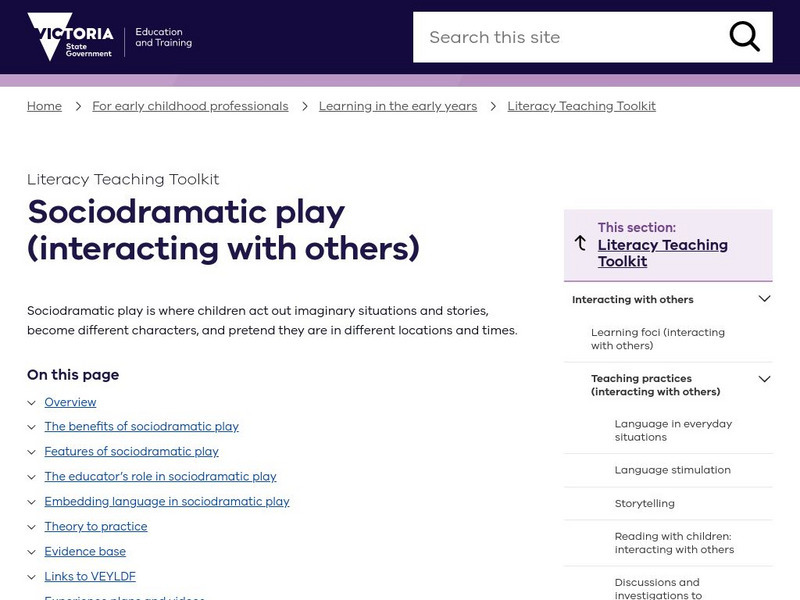Other
Lego Foundation: The Role of Play in Children's Development
This article reviews research that has been conducted in relation to the five types of play, namely physical play, play with objects, symbolic/semiotic play, pretend play, and games with rules.
Other
Victoria State Government: Sociodramatic Play (Interacting With Others)
Sociodramatic play is where children act out imaginary situations and stories, become different characters, and pretend they are in different locations and times. Sociodramatic play is the most advanced form of play, and constantly...
Edutopia
Edutopia: Longer Recess, Stronger Child Development
With an hour-long recess, elementary schools can help children develop through increased creative play, authentic SEL, and adequate physical regulation. This article explains the benefit of active play.
Edutopia
Edutopia: How to Use Play for Learning
Play is a primary and integral mode through which children make sense of the world, and that it is essential to their development and well-being. This article offers ideas on how to balance play and academic expectations in your classroom.
Other
Learners Edge: Play in the Classroom
Play is not more important than science, literacy, physics, or math - it IS science, literacy, physics, and math. It is the FOUNDATION for learning. This article touches on the research supporting the importance of incorporating play...
PBS
Pbs: Creativity and Play: Fostering Creativity
One of the most important types of creative activity for young children is creative play. This article discusses the benefits of creative play and other ways to foster creativity in your classroom.




